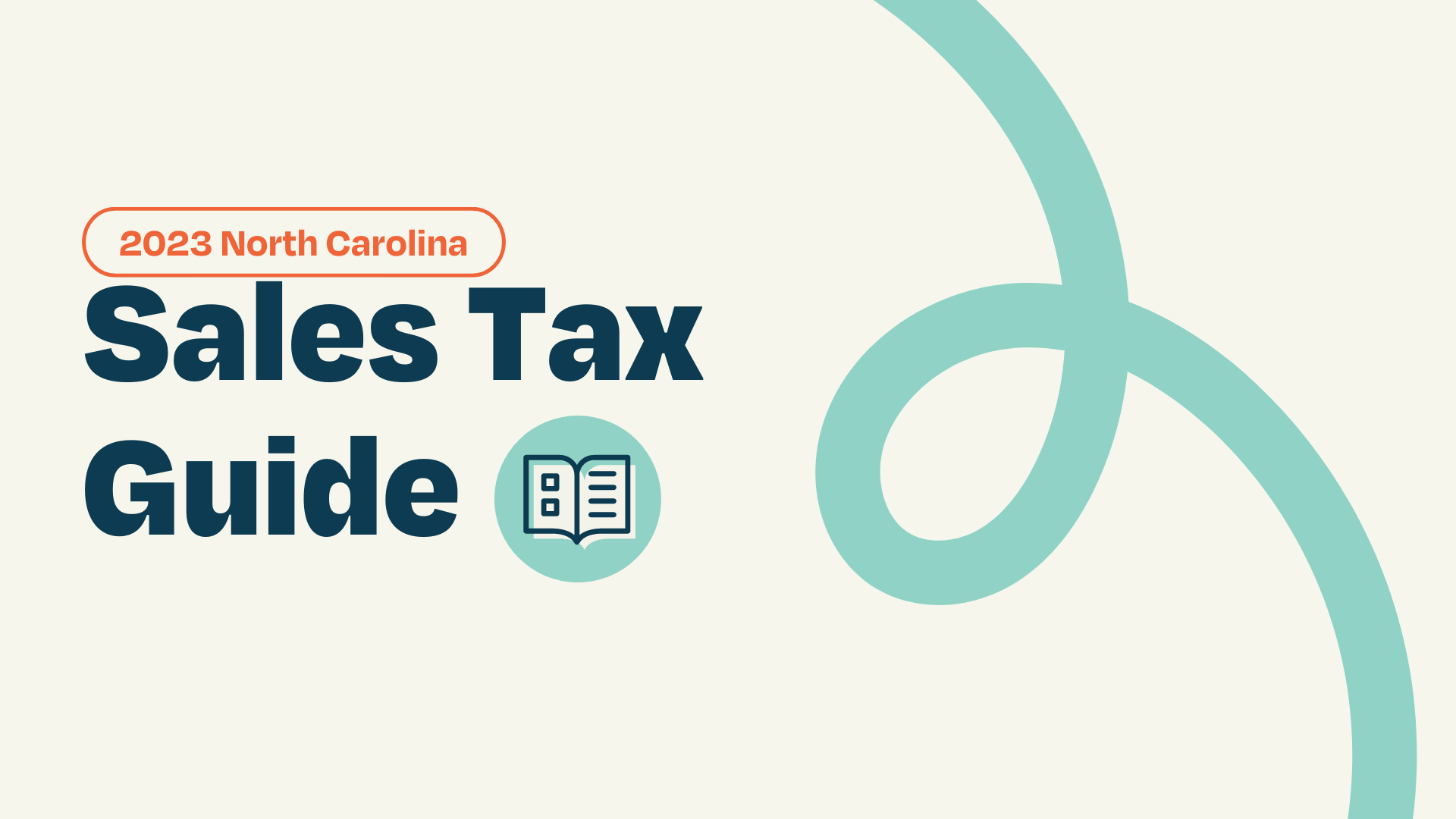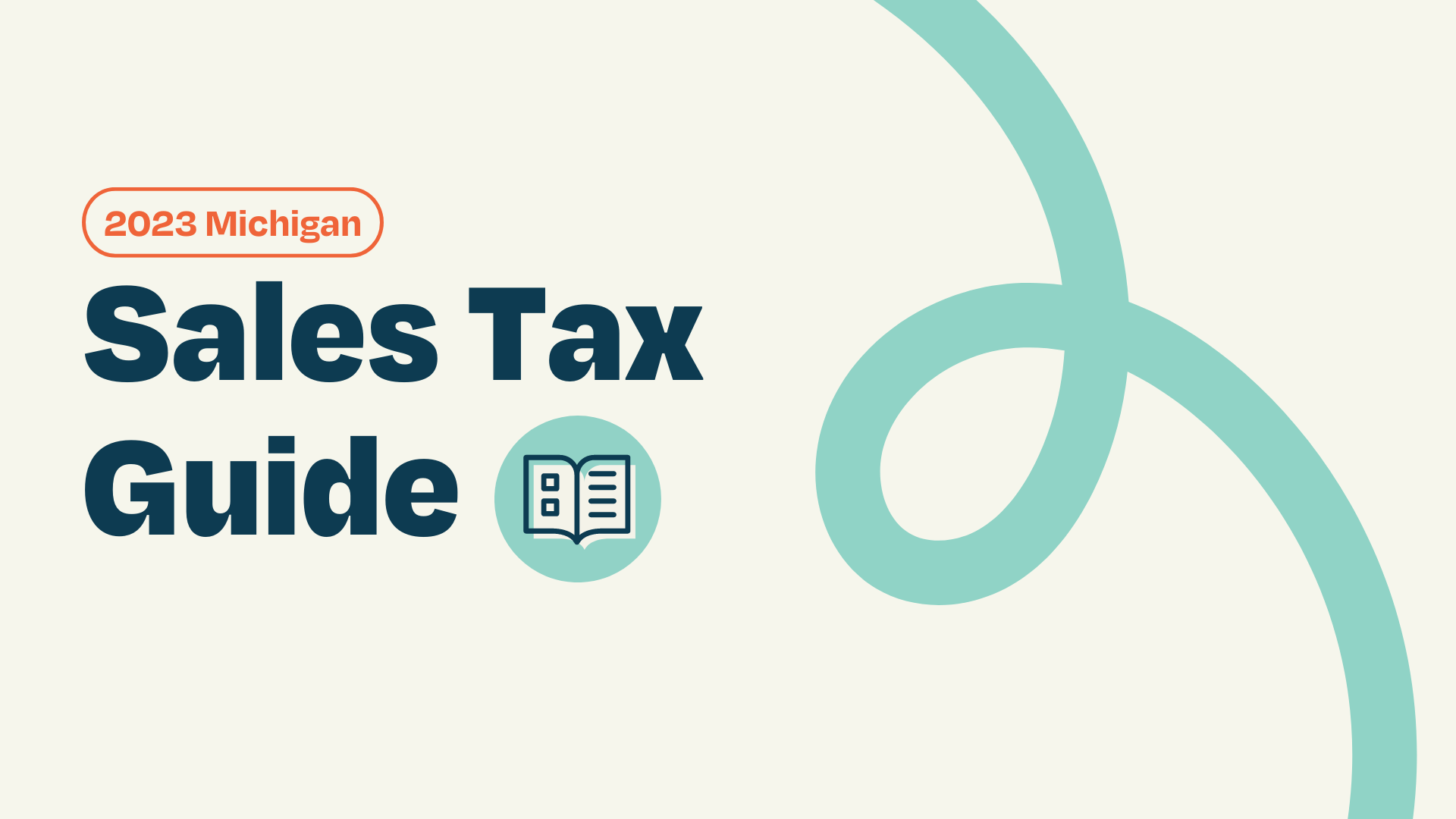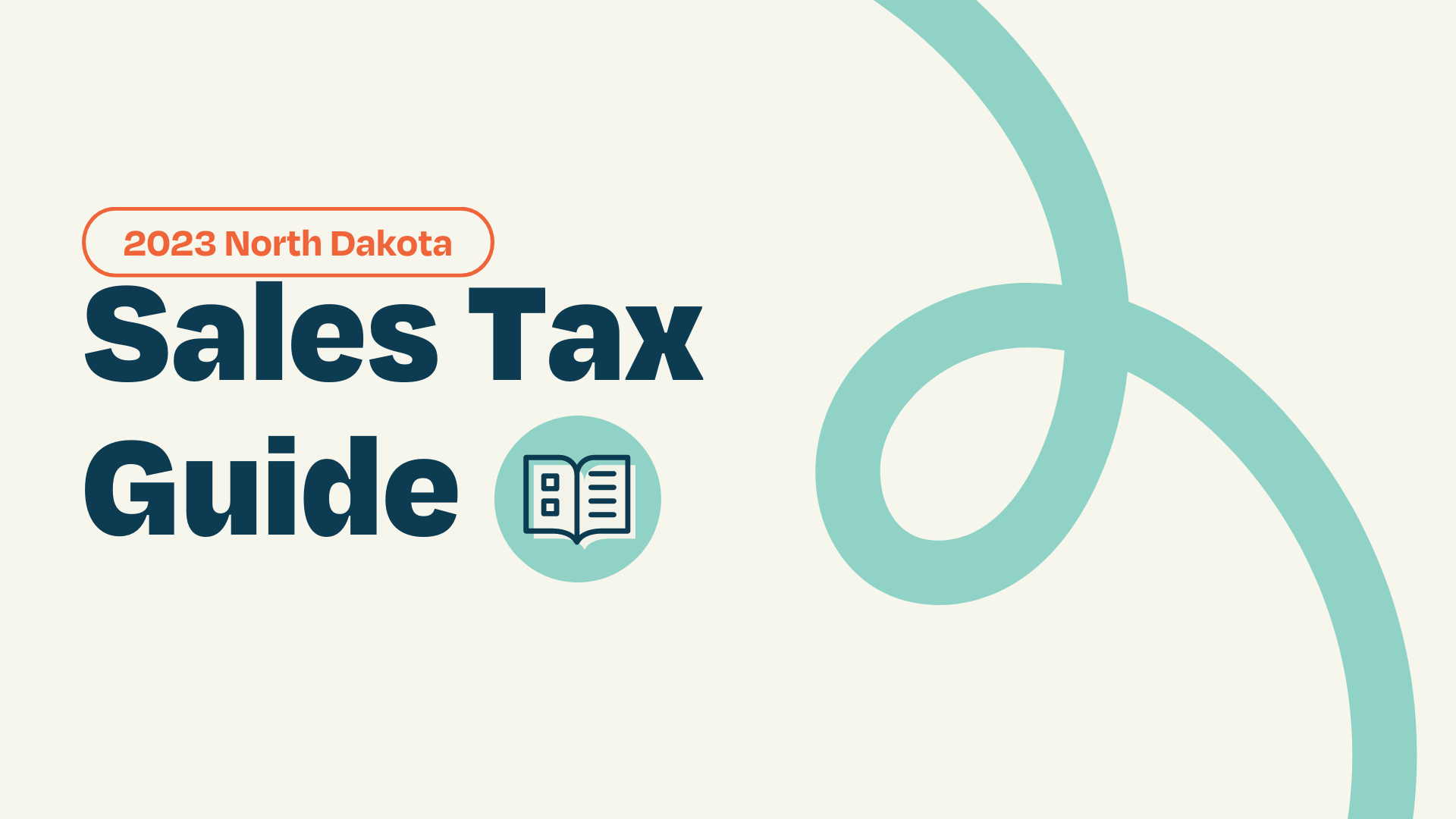1 min read
North Carolina 2023 Sales Tax Guide
North Carolina Sales Tax in a Word As a small business owner, navigating the world of sales tax can feel like a rollercoaster ride. One moment...

Ahoy there, small business captains! As you set sail on the vast ocean of entrepreneurship, there's no doubt you'll encounter many challenges along the way. One of these challenges, often seen as a formidable beast lurking beneath the surface, is the ever-important task of filing sales tax returns.
Fear not, brave navigators, for we have charted a course to guide you safely through the treacherous waters of Maine sales tax returns. In this blog post, we'll provide you with valuable tips and insights to help you stay on course, avoid common pitfalls, and ensure smooth sailing as you file your Maine sales tax returns.
From understanding filing deadlines and keeping accurate records to claiming applicable exemptions and embracing the convenience of electronic filing, our guide will serve as your trusty compass, always pointing you in the right direction.
So, gather your crew, hoist the Jolly Roger, and let's embark upon this tax adventure together!
|
Table of Contents |
Sailing through the seas of Maine sales tax can sometimes feel like navigating through a dense fog. To help you stay on course, we've gathered essential contact information for the Maine tax authorities. These trusted navigators will ensure you have the support and guidance needed to master sales tax compliance in the Pine Tree State.
The Maine Revenue Services (MRS), a division of the Maine Department of Administrative and Financial Services, oversees sales tax administration, collection, and enforcement in the state. They're your go-to source for all things related to Maine sales tax, from registration and filing to rates and exemptions.
If you need to get in touch with Maine Revenue Services, you can contact them through various channels:
Phone: (207) 624-9693
Email: sales.tax@maine.gov
Website: www.maine.gov/revenue
Mailing Address:
Maine Revenue Services
Sales Tax Division
P.O. Box 1060
Augusta, ME 04332-1060
With the Maine Revenue Services' expertise at your side, you'll be well-equipped to tackle any sales tax challenges that come your way. Keep your compass close, trust your navigators, and chart a course for sales tax success in Maine!
As you sail the seas of Maine sales tax, it's essential to determine whether your business has established nexus in the Pine Tree State. In this section, we'll explore the various ways your business may create a sales tax nexus in Maine, from physical and economic presence to affiliate and click-through relationships. We'll also discuss the marketplace nexus, which impacts online sellers and marketplace facilitators.
In the world of sales tax, "nexus" refers to a connection or presence that a business has in a particular state. When a business has nexus in Maine, it is required to collect and remit sales tax on taxable sales made within the state. Let's delve into the different types of nexus and how they may apply to your business.
Physical nexus is established when a business has a tangible presence in Maine, such as:
Owning or leasing property, including offices, warehouses, or retail locations
Having employees, agents, or sales representatives in the state
Storing inventory or merchandise in the state, even in a third-party warehouse
Economic nexus is triggered when a business has a significant economic presence in Maine, even without a physical presence. In Maine, economic nexus is established if, during the current or previous calendar year:
Your gross revenue from sales of tangible personal property, products transferred electronically, or services delivered into Maine exceeds $100,000, or
You conducted 200 or more separate transactions for the delivery of tangible personal property, products transferred electronically, or services into the state
Affiliate nexus occurs when a business has a relationship with an in-state entity that conducts activities on its behalf. In Maine, affiliate nexus is established if your business:
Has a substantial ownership interest in, or is owned by, a company with physical presence in Maine, or
Shares management, business systems, or employees with a Maine-based company
Click-through nexus is established when a business has an agreement with a Maine-based affiliate who refers customers to the business through a website link or other means, and the business generates over $10,000 in sales from those referrals during the previous calendar year.
Marketplace nexus impacts businesses that sell through online marketplaces, as well as the marketplace facilitators themselves. In Maine, marketplace facilitators are required to collect and remit sales tax on behalf of their sellers if the facilitator's sales, or the combined sales of the facilitator and its marketplace sellers, meet the state's economic nexus thresholds.
By understanding the various ways your business may establish nexus in Maine, you'll be better equipped to navigate the waters of sales tax compliance and ensure smooth sailing for your business endeavors. Better yet, hire a Maine sales tax expert like Accountingprose, and get back to adventuring around your beautiful state.
Before you can set sail on your Maine sales tax journey, you'll need to ensure your vessel is properly registered. In this section, we'll provide a detailed guide on how to register for sales tax in Maine, as well as important information about registration costs, federal tax ID numbers, and additional agency registrations.
To help you navigate the registration process with ease, we've outlined the key steps to register for a Maine sales tax license:
Gather necessary information: Before you begin the registration process, gather important information such as your business name, address, and contact information, as well as your federal tax ID number (EIN) or Social Security number.
Create an online account: Visit the Maine Revenue Services (MRS) Online Services Portal and click on "Register a New Business" to create an online account. You will need to provide a valid email address and create a unique username and password.
Complete the online application: After logging in, follow the prompts to complete the online application for a sales tax license. You will need to provide information about your business structure, ownership, business activities, and estimated monthly sales tax liability.
Review and submit your application: Carefully review your application for accuracy, and submit it electronically to the MRS. You will receive an email confirmation upon successful submission.
Wait for approval: The MRS will review your application and, if approved, issue your Maine sales tax license. This process typically takes 7-10 business days. Once you receive your license, you are authorized to collect and remit sales tax on taxable sales made within the state.
Good news, tax adventurers! Registering for a Maine sales tax license is completely free! There are no registration fees or hidden costs, allowing you to focus your resources on navigating the seas of sales tax compliance.
Yes, you will need a federal tax ID number, also known as an Employer Identification Number (EIN), to register for a Maine sales tax license. If you do not already have an EIN, you can obtain one for free by applying online through the IRS website.
If you are a sole proprietor without employees, you may use your Social Security number instead of an EIN when registering for a sales tax license.
In addition to registering with the Maine Revenue Services for a sales tax license, you may need to register your business with other state agencies, depending on your business activities. Some common agencies for additional registration include:
Maine Secretary of State: If your business is a corporation, limited liability company (LLC), or other formal business entity, you will need to register with the Maine Secretary of State. Visit their website for more information on business entity registration.
Maine Department of Labor: If you have employees, you may need to register with the Maine Department of Labor for unemployment insurance, workers' compensation, and other employment-related taxes. Visit their website for more information on employer registration.
By properly registering your business for sales tax in Maine and with any additional relevant agencies, you'll be well-equipped to navigate the waters of sales tax compliance with confidence and ease.
Now that your vessel is registered and ready for the Maine sales tax adventure, it's time to learn the ropes of collecting sales tax. In this section, we will explore whether Maine is an origin or destination sales tax state, what sales are subject to sales tax, software as a service (SaaS) taxation, exemptions, and more.
Maine is a destination-based sales tax state. This means that sales tax is based on the location where the buyer takes possession of the item or where it is delivered. For businesses with a physical presence in Maine, you'll need to collect sales tax at the rate applicable to the buyer's location, regardless of where your business is located.
In Maine, sales tax applies to the sale of most tangible personal property, as well as certain services. Some examples of taxable sales include:
Furniture, appliances, and electronics
Clothing and accessories
Motor vehicles and parts
Prepared food and restaurant meals
Hotel and lodging accommodations
Certain repair, installation, and maintenance services
Yes, Software as a Service (SaaS) is subject to sales tax in Maine. The state considers SaaS to be a taxable service when the software is remotely accessed by the customer and used primarily within the state.
There are several items and services exempt from sales tax in Maine, including:
Groceries and unprepared food
Prescription drugs and over-the-counter medications
Newspapers, magazines, and periodicals
Certain agricultural and manufacturing machinery and equipment
Sales to qualified nonprofit organizations, government entities, and schools
Maine sales tax exemptions are available to certain organizations and individuals, including:
Qualified nonprofit organizations
Government entities, such as federal, state, and local governments
Public and private schools
Native American tribal governments
Diplomatic personnel with proper identification
If you have a customer who is exempt from sales tax in Maine, you must obtain a completed Maine Sales Tax Exemption Certificate from the customer. Keep this certificate on file as documentation of the tax-exempt sale.
If you lose a Maine Sales Tax Exemption Certificate, you should contact the exempt customer and request a new, completed certificate. It is essential to keep accurate records of all tax-exempt sales and corresponding exemption certificates to stay compliant with Maine sales tax regulations.
By understanding how to collect sales tax and navigate exemptions in Maine, you'll be well-prepared to conquer the sales tax seas and ensure smooth sailing for your business.
Congratulations, tax adventurer! You've successfully navigated the waters of collecting sales tax in Maine. Now it's time to dock your ship, file your sales tax return, and pay the taxes you've collected. In this section, we'll guide you through the filing and payment process, including key deadlines, filing procedures, penalties, and incentives.
Maine sales tax returns are due based on the filing frequency assigned to your business by the Maine Revenue Services (MRS). The filing frequency is determined by your estimated annual sales tax liability:
Monthly: If your annual sales tax liability is greater than $3,000, you must file and pay monthly. Returns are due by the 15th day of the month following the month in which the tax was collected.
Quarterly: If your annual sales tax liability is between $600 and $3,000, you must file and pay quarterly. Returns are due by the last day of the month following the end of the quarter (April 30th, July 31st, October 31st, and January 31st).
Annual: If your annual sales tax liability is less than $600, you must file and pay annually. Returns are due by January 31st of the following year.
If a Maine sales tax filing date falls on a weekend or holiday, the due date is automatically extended to the next business day.
Filing a Maine sales tax return is a crucial step to ensure compliance and avoid penalties. To make this process as smooth as possible, follow these steps and choose the method that works best for you: electronic filing or paper filing.
Before you begin filing your sales tax return, gather all the necessary records for the filing period. These records should include:
Total sales, including exempt sales
Taxable sales
Sales tax collected by jurisdiction
Sales tax exemptions and exemption certificates
Copies of any invoices, receipts, or other documentation related to your sales
There are two methods for filing a Maine sales tax return: electronic filing through the MRS Online Services Portal or paper filing using Form ST-3.
To file electronically, follow these steps:
Visit the MRS Online Services Portal and log in to your account. If you don't have an account, you'll need to complete the registration process first.
Once you're logged in, click on the "File a Return" link under the "Sales Tax" section.
Select the appropriate filing period and click "Next."
Enter your total sales, taxable sales, and sales tax collected for each jurisdiction in the designated fields. Be sure to include any sales tax exemptions or credits that apply.
Review your return for accuracy and make any necessary corrections.
Submit your return electronically by clicking "Submit." You'll receive a confirmation number as proof of submission.
If you have a tax liability, you can make an electronic payment through the portal using ACH debit, credit card, or e-check.
To file your sales tax return by mail using Form ST-3, follow these steps:
Download and print Form ST-3 from the MRS website.
Fill out the necessary information, including your business identification number, filing period, total sales, taxable sales, and sales tax collected for each jurisdiction. Be sure to include any sales tax exemptions or credits that apply.
Double-check your return for accuracy and make any necessary corrections.
Sign and date the form, then make a copy for your records.
Mail the completed form to the following address:
Sales Tax Division
P.O. Box 1064
Augusta, ME 04332-1064
Include a check or money order for the tax due, made payable to "Treasurer, State of Maine." Be sure to write your business identification number and the filing period on the check or money order.
By following these steps and choosing the filing method that works best for you, you'll be well-prepared to file your Maine sales tax return accurately and on time.
Happy filing, tax adventurers!
If you fail to file or pay your Maine sales tax on time, you may be subject to the following penalties:
Late filing penalty: A penalty of $25 or 10% of the tax due, whichever is greater, will be assessed for filing your return late.
Late payment penalty: A penalty of 1% per month (or fraction thereof) of the tax due will be assessed for late payments.
Negligence penalty: If the MRS determines that your failure to file or pay was due to negligence, a penalty of 25% of the tax due may be assessed.
Fraud penalty: If the MRS determines that your failure to file or pay was due to fraud, a penalty of 50% of the tax due may be assessed.
Yes, Maine offers some sales tax incentives to encourage economic development and promote certain industries. Some examples of sales tax incentives include:
Pine Tree Development Zones: Businesses that operate in designated Pine Tree Development Zones may be eligible for sales tax refunds on the purchase of machinery, equipment, and other qualifying property.
High-Technology Investment Tax Credit: A refundable sales tax credit is available for businesses that invest in qualified high-technology equipment used in research and development.
By understanding the filing and payment process for Maine sales tax, you'll be well-prepared to tackle this leg of your tax adventure. Remember to stay on top of deadlines, keep accurate records, and take advantage of available incentives. Sail on, tax adventurers!
Navigating the sales tax seas can be challenging, but with these five tips, you'll be better prepared to avoid common pitfalls and ensure smooth sailing when filing your Maine sales tax returns.
Missing a filing deadline can result in late filing penalties, so it's crucial to stay on top of your assigned filing frequency and due dates:
Monthly filers: Returns are due by the 15th day of the month following the month in which the tax was collected.
Quarterly filers: Returns are due by the last day of the month following the end of the quarter (April 30th, July 31st, October 31st, and January 31st).
Annual filers: Returns are due by January 31st of the following year.
Mark these dates on your calendar or set reminders to ensure timely filing.
Maintaining thorough and accurate records of your sales transactions, including exempt sales, taxable sales, sales tax collected, and exemption certificates, is essential for filling out your sales tax return correctly. Regularly review and update your records to avoid errors and discrepancies when filing.
Before submitting your sales tax return, take the time to double-check your calculations for total sales, taxable sales, and sales tax collected. Verify that your numbers match your records and that you've applied the correct sales tax rates for each jurisdiction. A simple error in calculations can lead to an inaccurate return and potential penalties.
Maine offers several sales tax exemptions for specific items, services, and organizations. Ensure that you understand the exemptions that apply to your business and that you have the proper documentation, such as exemption certificates, to support these claims. Understanding and claiming applicable exemptions can help you avoid overpaying sales tax.
Filing and paying your Maine sales tax return electronically through the MRS Online Services Portal can help you avoid errors commonly associated with paper filing, such as illegible handwriting or lost forms. Electronic filing also provides immediate confirmation of submission and allows for convenient online payment options like ACH debit, credit card, or e-check.
By following these five tips, you'll be well-equipped to avoid common mistakes when filing your Maine sales tax returns. Keep a sharp eye on the sales tax horizon, and sail on, tax adventurers!
As we reach the end of our tax adventure, it's time to celebrate your newfound knowledge and expertise in navigating the often choppy waters of Maine sales tax returns. By following the guidance and tips shared in this blog post, you've not only become a more confident captain at the helm of your small business ship, but you've also ensured a smoother voyage for your crew and your bottom line.
Remember, the key to conquering the sales tax seas lies in staying organized, understanding the rules and regulations, and always seeking ways to improve your processes. With your trusty compass of knowledge in hand and an unwavering commitment to your journey, you're well on your way to mastering the art of sales tax returns and steering your small business toward success.
So, as you sail onward toward new horizons, never forget the lessons learned on this voyage and know that we, your loyal tax-adventure crew at Accountingprose, will always be here to support you every nautical mile of the way.
Fair winds and following seas, intrepid entrepreneurs!
|
Ready to work with a Maine sales tax expert? We've love to work with you! |
|
Alaska Sales Tax Guide (N/A) |
||||
|
Montana Sales Tax Guide (NA) |
||||
|
Oregon Sales Tax Guide (N/A) |
||||
|
Delaware Sales Tax Guide (N/A) |
||||
|
New Hampshire Sales Tax Guide (NA) |
||||
And don't forget to check out our blog about Economic Nexus, which serves as an invaluable resource for businesses who have sales that are subject to sales tax.
This blog is for informational purposes only and the information is accurate as of 2023-06-19. If you want legal advice on sales tax law for your business, please contact a State and Local Tax (SALT) professional. Keep in mind that sales tax regulations and laws are subject to change at any time. While we strive to keep our blog current, this blog possibly may be out of date by the time you review it.

1 min read
North Carolina Sales Tax in a Word As a small business owner, navigating the world of sales tax can feel like a rollercoaster ride. One moment...

Michigan Sales Tax in a Word Hey there, small business superheroes! Are you ready to conquer the world of sales tax filing in Michigan? You've come...

North Dakota Sales Tax in a Word Embarking on the journey of running a small business in North Dakota is an exciting adventure filled with...